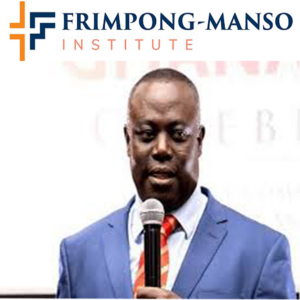The Frimpong-Manso Institute (FMI), a respected voice in Ghana’s socio-political landscape, has issued a timely and crucial appeal for peace and restraint amidst rising tensions surrounding contested parliamentary election results. This call for calm is directed at all key stakeholders in Ghana’s governance structure, encompassing Parliament, the judiciary, and other relevant institutions. The FMI underscores the potential for escalating disputes to negatively impact the nation’s business environment and overall economic stability, highlighting the interconnectedness of political stability and economic prosperity. The Institute’s message emphasizes the shared responsibility of all Ghanaians, particularly those in positions of influence, to safeguard the nation’s hard-won democratic gains and its longstanding tradition of peaceful coexistence.
The FMI’s appeal extends beyond the formal structures of government, encompassing a broad spectrum of societal actors. Religious bodies, traditional authorities, civil society organizations, academic institutions, media outlets, and business associations are all urged to play a proactive role in promoting peace and understanding. The Institute emphasizes the importance of these institutions leveraging their influence within their respective spheres to foster dialogue, de-escalate tensions, and reinforce the values of unity and mutual respect. This collective effort is seen as essential to mitigating the risks posed by political polarization and ensuring that disagreements are addressed through established legal and constitutional channels.
In a Christmas message to the nation, Rev. Prof. Paul Frimpong-Manso, President of the FMI, invoked the spirit of the season, urging Ghanaians to embrace peace and reconciliation. He emphasized the fragility of Ghana’s democracy, highlighting the need for continuous and deliberate efforts to strengthen its foundations. His message underscored the importance of prioritizing national unity and stability above partisan interests, reminding citizens that a peaceful and stable environment is a prerequisite for meaningful development and progress. This message resonates deeply within a nation that has consistently championed democratic principles and peaceful transitions of power.
Rev. Prof. Frimpong-Manso’s message draws parallels between the biblical prophecy of the Messiah, a symbol of peace and good governance, and the current political climate in Ghana. As the incoming Mahama administration prepares to assume office, facing the complex task of balancing campaign promises with the realities of structural challenges, the FMI’s call for peace takes on added significance. The Institute recognizes the potential for heightened political maneuvering and contestation during this transition period and emphasizes the need for all parties to exercise restraint and prioritize the national interest.
The FMI’s message also highlights the crucial role of the various branches of government in maintaining peace and stability. Rev. Prof. Frimpong-Manso emphasizes that without peace, the effectiveness of Parliament, the judiciary, and other relevant institutions is severely compromised, potentially rendering them obsolete. He argues that these institutions, designed to uphold the rule of law and ensure good governance, cannot function effectively in an environment of chaos and instability. This underscores the interconnectedness of the different branches of government and the importance of their collaborative efforts to maintain a peaceful and stable political landscape.
In concluding its appeal, the FMI reiterates the importance of sensitivity and restraint in the actions and pronouncements of all institutions and individuals. The Institute calls upon all Ghanaians to recognize their shared responsibility in safeguarding the nation’s democratic progress and preserving the hard-won peace and stability. This call for collective action reflects the understanding that democratic governance is a continuous process that requires the active participation and vigilance of all citizens. The FMI’s message serves as a timely reminder of the importance of unity, dialogue, and mutual respect in navigating the complexities of a democratic society.














